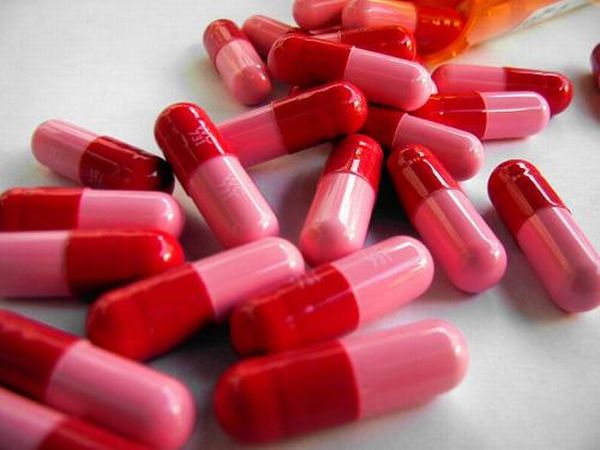
Certain drugs and medicines are shown to have undesirable effects and cause sensitive reactions. The moment a drug is administered in the body, your immune system reacts to it and creates specific antibodies, which are called immunoglobulins that help in recognizing the substance as foreign body. If the same drug is taken again, the antibodies generated during the first dose take up their role and release histamine in large quantities which cause allergies.
Symptoms
Drug allergy symptoms can range from mild to severe. Many drugs can cause irritation even among people who are actually not allergic to any drug. Sometimes the drug reaction is severe and the histamine release can lead to symptoms like; skin rash, congestion, mouth and throat swelling, hives, and itchy eyes. Allergic reactions that are very severe and cause a greater damage result in blueness of the skin, confusion, difficult breathing, anxiety, dizziness, rapid pulse, nausea, fainting, abdominal pain, and diarrhea.
Drugs that Cause Allergic Reaction
Drugs that cause drug allergies are:
1. Penicillin
2. Anti-convulsants
3. Barbiturates
4. Iodine
5. Sulpha drugs
Diagnosis of Drug Allergies
A doctor can diagnose allergies related to drugs by reviewing the history of the patient and symptoms associated with it. The drug allergy related to penicillin can be easily detected by a skin test prescribed by a doctor. Skin tests cannot always be a good choice for detecting drug allergies and can sometimes prove fatal as well. If you are allergic to a particular drug, the doctor concerned can stop immediately the drug for you. Certain drugs can cause severe complications which can sometimes prove fatal. By conducting an allergic test related to a particular drug and by checking initial reactions one can be sure that it is safe.
Treatment of Drug Allergies
The key goal of treatment is to alleviate symptoms and provide relief. Antihistamines can be used for symptoms like, hives, itching and rashes. Corticosteroids can be orally administered, applied to skin or intravenously injected. Bronchodilators can be used for widening the airway, congestion and coughing. Epinephrine may be provided in case of anaphylactic symptoms, e.g. difficulty in breathing or loss of consciousness or severe fatal situations. In case of penicillin allergy, desensitization can be given orally. By taking desensitizers, human body becomes sensitive to specific allergens. By the time body tolerates the drug, penicillin in small amounts can be administered periodically. Your doctor can prescribe alternative antibiotics, if you are allergic to certain antibiotics.
How Can I Be Prepared for Drug Allergies?
In case, you are allergic to certain drugs, your health care specialist should be aware of it in order to overcome complications. You can wear a MedicAlert bracelet or pendant or possess a card that mentions drugs you are allergic to. It can save your life, in case of emergency. You should always consult allergist that specializes in providing doses of drugs.
Expectations (prognosis)
Mainly drug allergies react readily to treatment. A small number of cases cause anaphylaxis, asthma or death.
Complications
a. Fatal, severe allergic response (anaphylaxis)
b. Asthma
c. Severe swelling under the skin (angioedema), can prove if it affects the tongue, or lungs or throat.
Contacting Health Care Provider
Inform your health care supplier, if you are taking any drugs that seem to be having a response to it. Go to the emergency room or call the local emergency number (such as 911), if you have difficulty breathing or build up other symptoms of stern asthma or anaphylaxis.
Prevention
Drug allergy cannot be prevented by any precaution. If you know the drugs that cause allergy, the best way to prevent is to avoid those medications or related ones, e.g. amoxicillin or ampicillin can be also avoided in case of penicillin allergy. In case, you are previously being treated with antihistamines or corticosteroids, you should mention it to your doctor in case of other disorder. Pretreatment with these drugs can cause life-threatening complications. Desensitization process is not an easy task, you should consult medical practitioner and under proper medical supervision.




